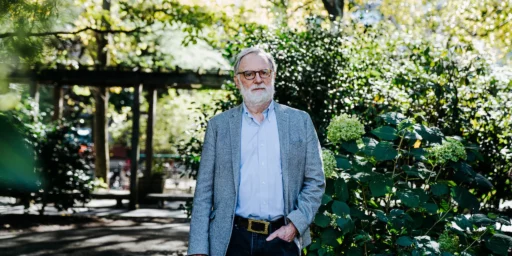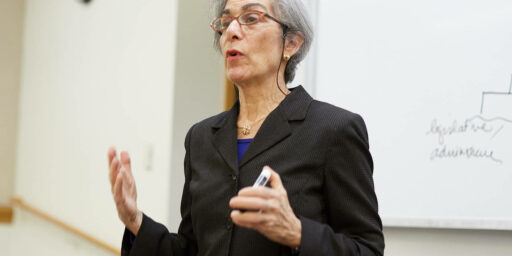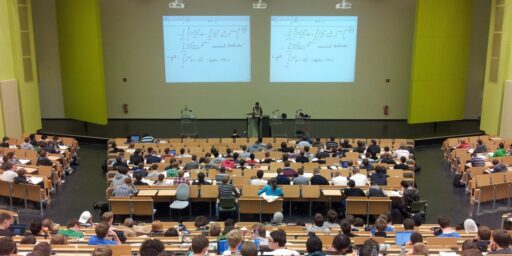Empathy Deficit
Today's college students are 40 percent less empathetic than they were thirty years ago. Is our political culture to blame?
Today’s college students are 40 percent less empathetic than they were thirty years ago, a new study finds.
Young Americans today live in a world of endless connections and up-to-the-minute information on one another, constantly updating friends, loved ones, and total strangers — “Quiz tomorrow…gotta study!” — about the minutiae of their young, wired lives. And there are signs that Generation Wi-Fi is also interested in connecting with people, like, face-to-face, in person. The percentage of high school seniors who volunteer has been rising for two decades.
But new research suggests that behind all this communication and connectedness, something is missing. The study, conducted by researchers at the University of Michigan Institute for Social Research, found that college students today are 40 percent less empathetic than they were in 1979, with the steepest decline coming in the last 10 years.
According to the findings, today’s students are generally less likely to describe themselves as “soft-hearted” or to have “tender, concerned feelings” for others. They are more likely, meanwhile, to admit that “other people’s misfortunes” usually don’t disturb them. In other words, they might be constantly aware of their friends’ whereabouts, but all that connectedness doesn’t seem to be translating to genuine concern for the world and one another.
[…]
It’s so inconceivable that [Mark Davis, a professor of psychology at Eckerd College in Florida] counts himself among the skeptics of the new research that documents the decline. “Put me down,” he said, “as intrigued by it.” He points out that [Sara] Konrath, along with coauthors Edward O’Brien and Courtney Hsing, are drawing their conclusions from a relatively small sample size — just 72 studies over three decades. He and others would like to see more work on the matter before making any final conclusions about how much young people care, or don’t care, about others. But even some skeptics agree that it’s disturbing to consider the trend laid out in the new research and then play out the string.
[…]
Such studies have obvious flaws. Some people, when surveyed, want to give answers that reflect positively on them. However, researchers have found that these scales are actually effective at predicting how people will behave. Spouses who score higher on empathic concern are more likely to offer emotional support to their partners. People capable of seeing another person’s perspective are more likely to help and less likely to exhibit aggression. And those who are narcissistic are probably going to be less empathetic. “Generally speaking,” said Pincus, “there’s a lack of empathy as narcissism increases.”
While I’m dubious of the research findings — it’s quite possible, for example, that today’s teens are simply more honest than their predecessors about how they feel — it’s not a completely implausible finding.
But, as with everything else, this study will be politicized. Mike Tomasky, for example, blames Bush.
The college students of the 2000s were the first crop raised entirely in the modern era of conservative dominance: they were born from the Reagan ascendancy onward. So they’ve grown up hearing lots of authority figures say that poor people made their own problems, etc etc etc.
You want to tell me that’s a mere coincidence, the sharp drop-off in empathic concern among exactly the cohort that grew up wholly in conservative America?
Yes!
You’ll note, for example, that the same period has been marked by increased volunteerism among the same cohort. So, they grew up actually doing more to help the less fortunate but, at the same time, apparently less able to see themselves in that position.
The technological explanation is much more plausible. The movement of our online social lives online means that we’re much more likely to spend our time with people more like ourselves — whether they’re in the room or not — and less likely to spend it with people very different from us. It makes sense, then, that this would create a clique mindset.
The current social culture, especially the under-35 culture, is also exceedingly cynical and ironic in a way that it wasn’t when I was coming up. And, again, it’s largely a function of social segregation. Back in the days of three networks and one television in the house, everyone watched the same family-oriented pap with its feel-good messages and not-so-subtle lessons. Now, everyone watches demographically targeted entertainment. Again, this makes people not only less empathetic but less likely to wish to present themselves as warm, fuzzy types.
Finally, to the extent that our political culture is pushing our youth into empathy deficit, it strikes me far more likely that it’s the artificial polarization of the last two decades or so, rather than the ideology of individual power, that’s done it. When there’s a 24/7/365 campaign on telling you how awful the other side is, it’s hard to gin up warm feelings for those who disagree.







The South Park generation meets a harsh post-graduation jobs environment.
A lot of school districts require students to “volunteer” so many hours in order to graduate. They weren’t doing that twenty-odd years ago when I was in high school.
This may well explain the claim that “the percentage of high school seniors who volunteer has been rising for two decades.”
Kids these days… unempathetic, heartless vermin who better stay off my lawn!
On the plus side, no more Supreme Court confirmation hearings going on and on about empathy.
Students are also required to do volunteer work by many colleges. I dont know what the rate of true volunteerism would be. I think your observation about separate worlds is probably closest. Too many people actually believe the entertainers who pretend to be giving us news. We are all much more alike than we are different. You can work all day alongside someone you like and respect, then go online and lambaste the same guy as being un-American, anonymously, because he thinks it is ok to raise taxes by 4%.
Steve